Despite the increasingly vast and diversified offer, Lisbon and Porto have managed to keep many of its Historic Cafés alive. They stand out for their beautiful facades and pompously decorated interiors, testimonies of the History of the cities and the country. Second home of writers, artists, politicians and bohemians, they keep memories of heated gatherings, debates, spy stories and conspiracies. All About Portugal challenges you to get to know some of the Emblematic Cafés that were able to resist and adapt to new times, becoming ex-libris of the two cities. Order a bica if you are in Lisbon, a cimbalino in Porto, or a simple espresso. Accompany it with a sweet treat… or just generous chunks of History and Tradition.
A Brasileira, Lisboa
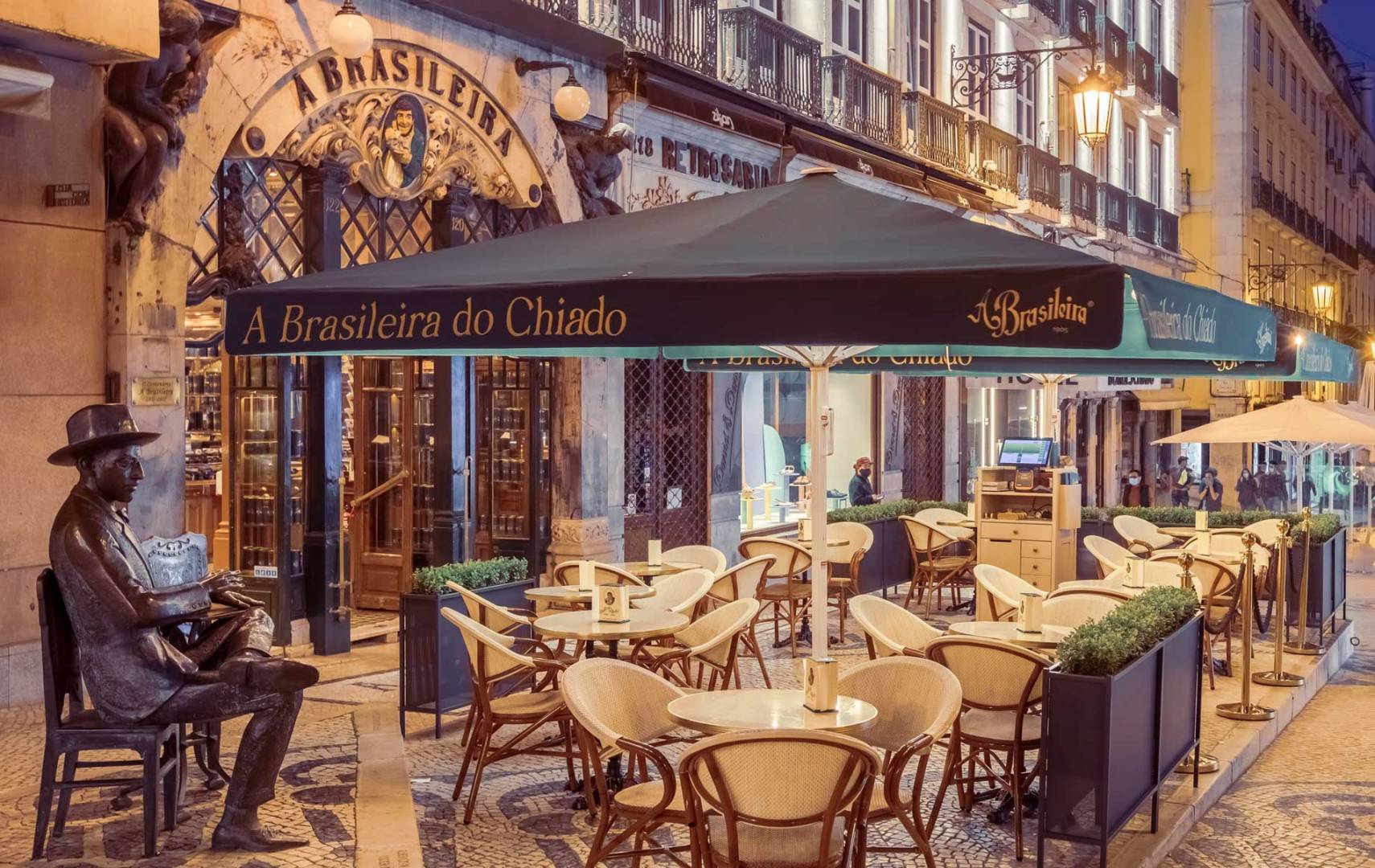
Built in 1905 in the heart of Chiado, it is the most famous of Lisbon's Historic Cafés, and Fernando Pessoa is its “cicerone”. The bronze statue of the poet outside is an irresistible attraction for the typical photography, but don't miss the inside — you'll find a true artistic and architectural treasure. The luxury and elegance of the art deco decoration explain why it became a place of choice for the intellectual elites of yore. Get inspired while tasting a "bica", the local name for espresso.
Martinho da Arcada
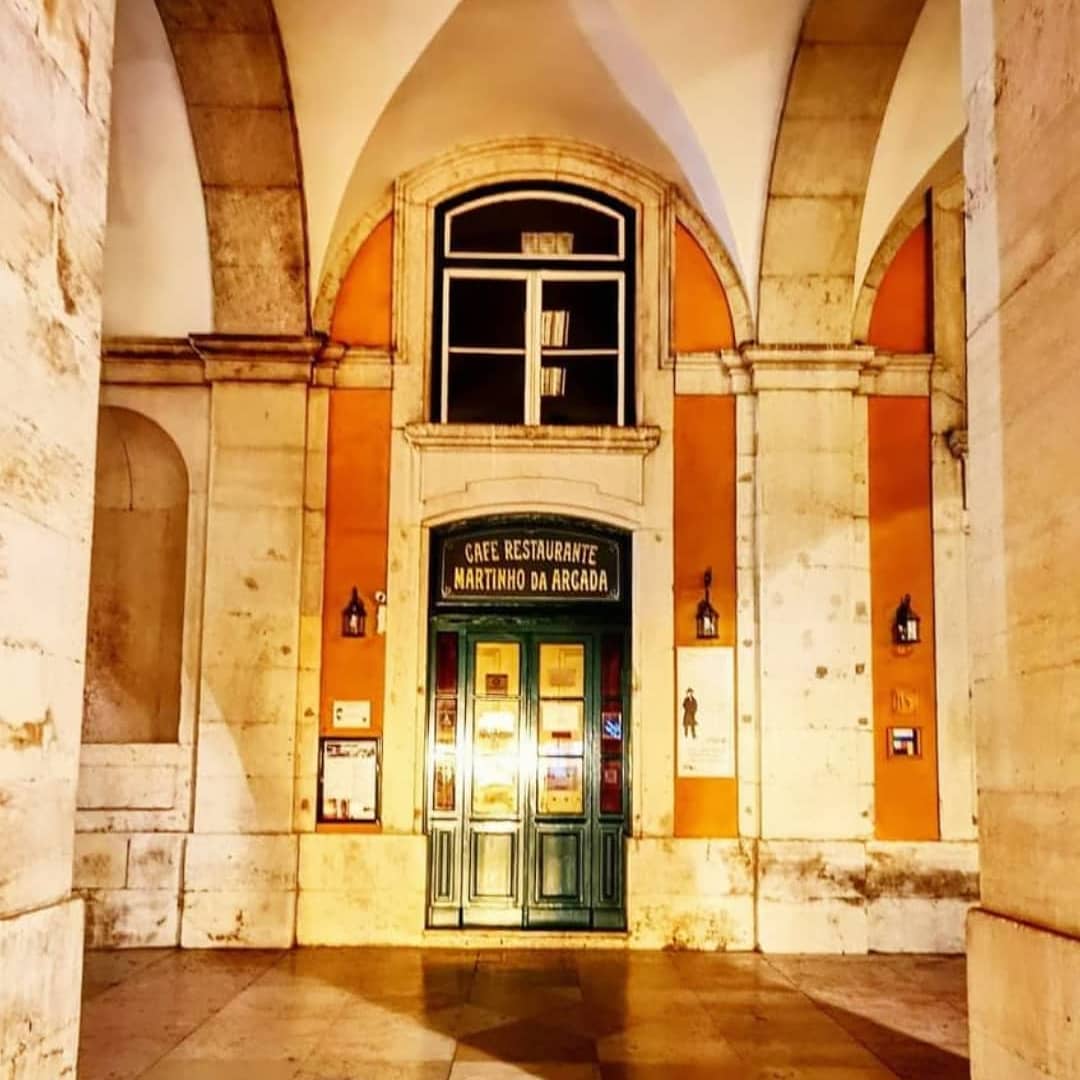
Built a few years after the great earthquake of 1755, in the brand new Terreiro do Paço, it had several names until it was established as Café Martinho da Arcada, in 1845. Over more than two centuries, it had as clients the famous people of each era, but it was the artists who left a deep mark there. Even today, the poet Fernando Pessoa, who had his last coffee here, and the Nobel Prize for Literature José Saramago have a table permanently reserved. Book yours too, for a coffee with History or a very Portuguese snack.
Café Nicola
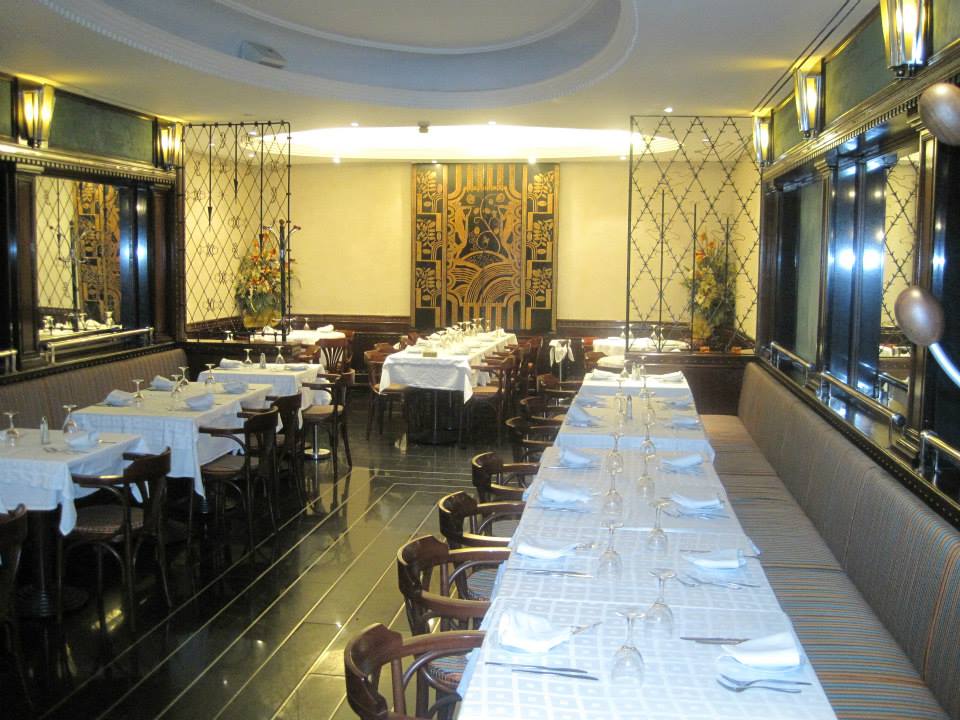
It started by being called Botequim Nicola, still in the 18th century, and since then it has become a place for well-known artists and writers. Legend has it that the poet Manuel Maria Barbosa du Bocage made this emblematic café his second home and an improvised stage where he recited his sonnets. After having gone through various owners and activities, it was reborn in 1929 as the Café Nicola we know today, with the statue of Bocage welcoming those who arrive, and its unmistakable facade and the poet's oil paintings decorating the interior. In addition to coffee, steak is the house specialty.
Pastelaria Versailles
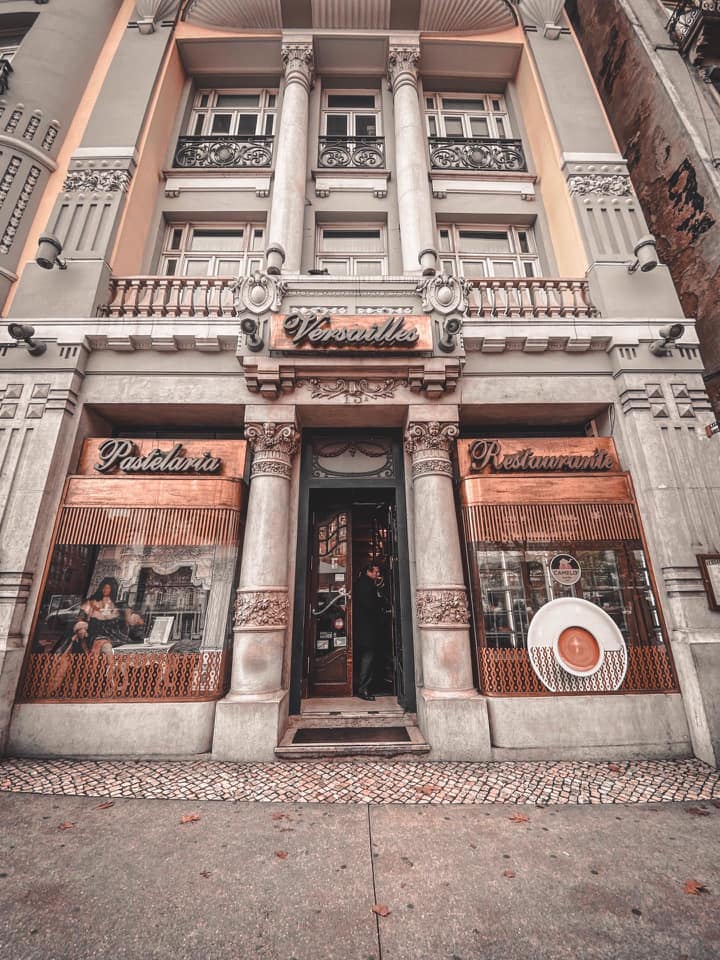
Refinement is the keyword at Pastelaria Versailles, one of the Historic Cafés in the Portuguese capital city. It starts with its art nouveau furniture, the paintings and carvings, the chandeliers, mirrors, the excellent service and ends, of course, with the sweet temptations. Be sure to try the allumettes, duchesses, garibaldi or the classic croquetes. If you are looking for a very Portuguese meal or, simply, a coffee with History, but without the hustle and bustle of tourists who flood downtown Lisbon, be sure to visit this century-old house on Avenida da República.
Pastéis de Belém
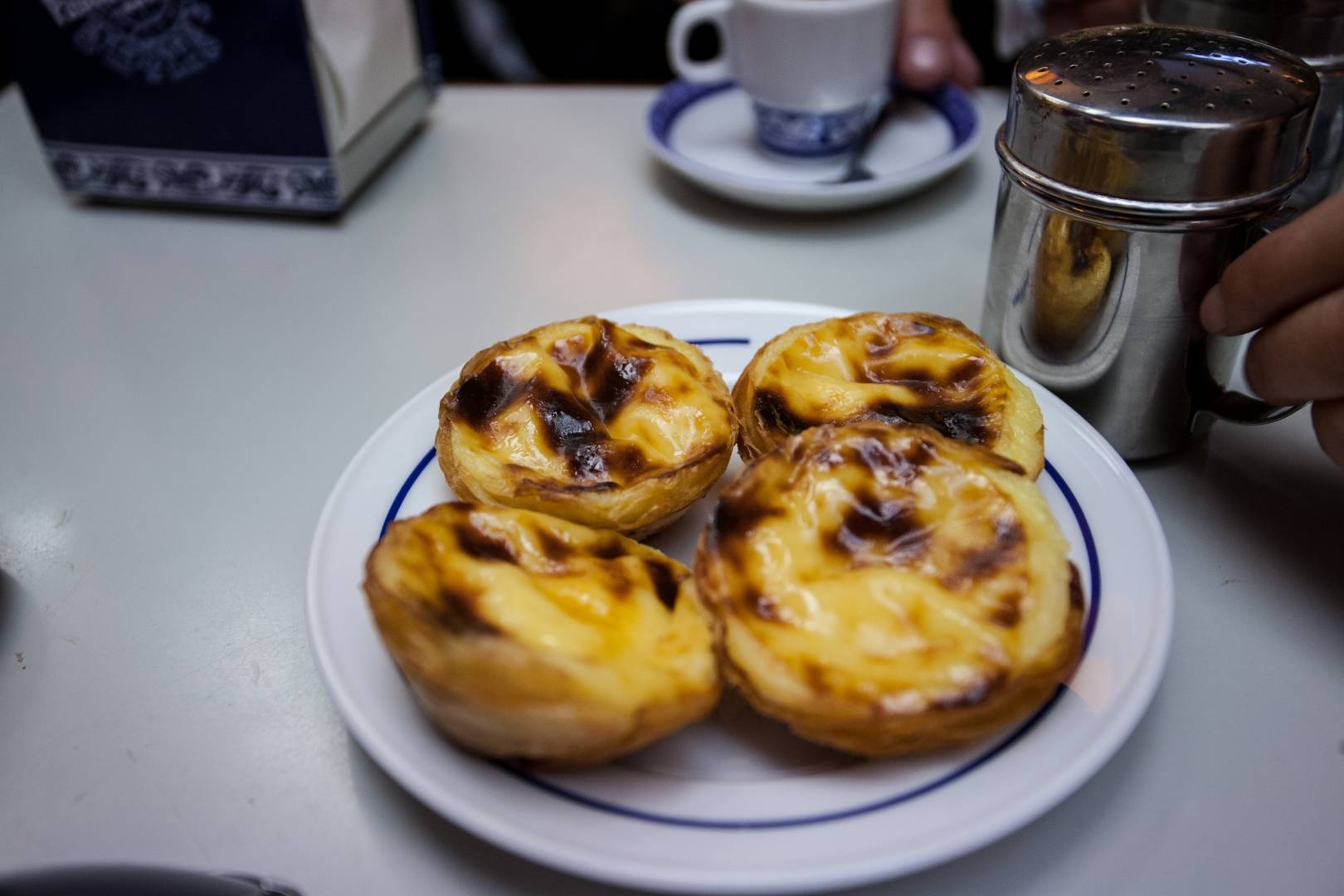
A coffee and a pastel de Belém – an unbeatable duo! The combination never fails, but if you want to add a bit of history and tradition to these two, the Pastéis de Belém factory is a good option. Built in 1837, it was a pioneer of the famous pastries according to an old recipe from the Jerónimos Monastery. Being one of the most famous emblematic cafes in the capital city, get ready for a flood, whatever the time of day. Take the opportunity to appreciate the 18th century tile panels while enjoying a coffee and a freshly baked Belém pastel.
Confeitaria Nacional
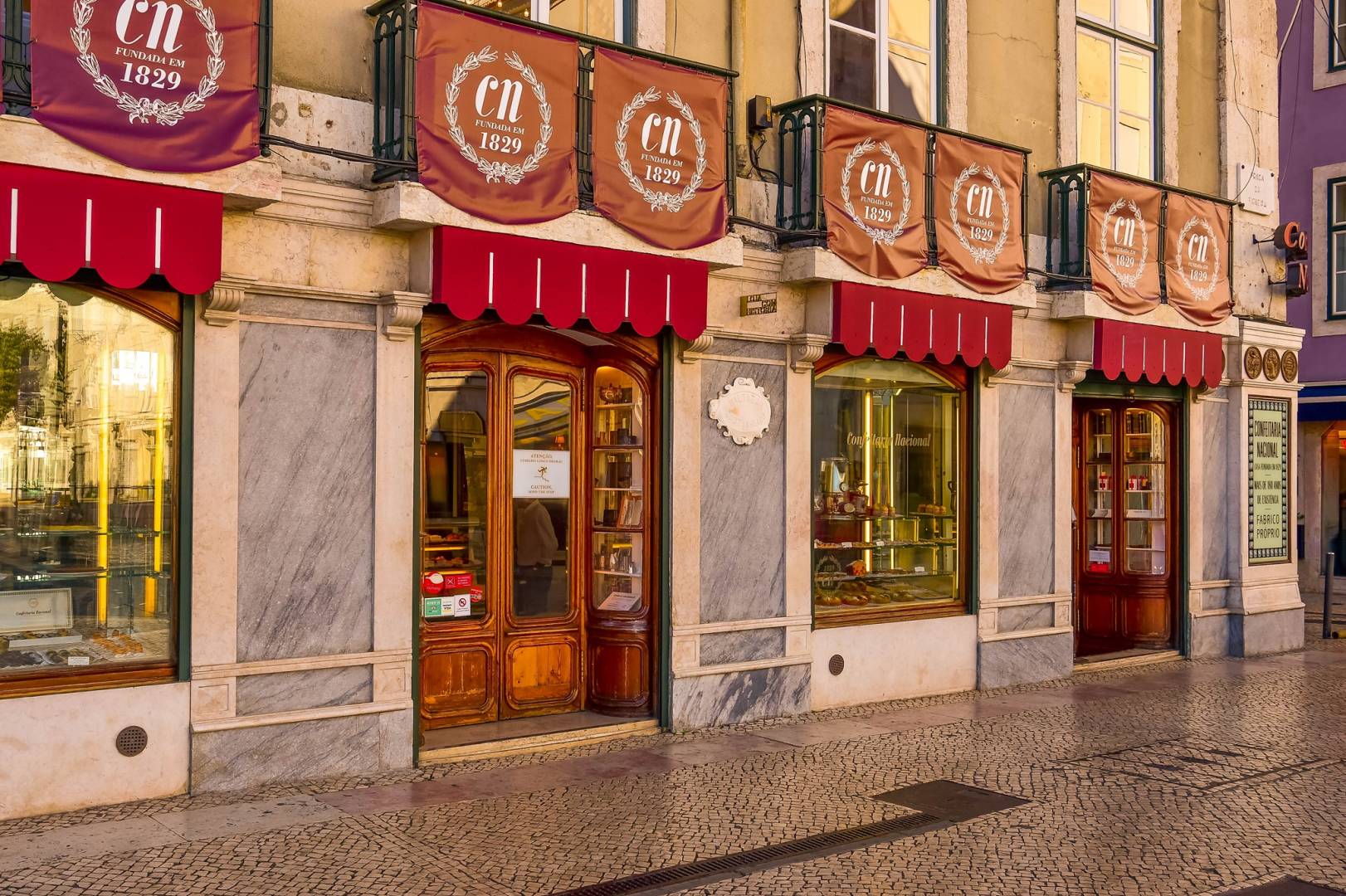
The imposing centenary building, the sign adorned with medals won in international confectionery competitions and the elegantly decorated shop windows calls the attention of those who pass by Praça da Figueira. Confeitaria Nacional is one of Lisbon's Historic Cafés that you cannot miss. From its interior, richly decorated in pastel and golden tones, in 1850, came the famous Bolo-Rei made from a French recipe that, they assure, remains unchanged. The irresistible cake can go along an artisanal roasted coffee, produced by Confeitaria Nacional.
Majestic Café
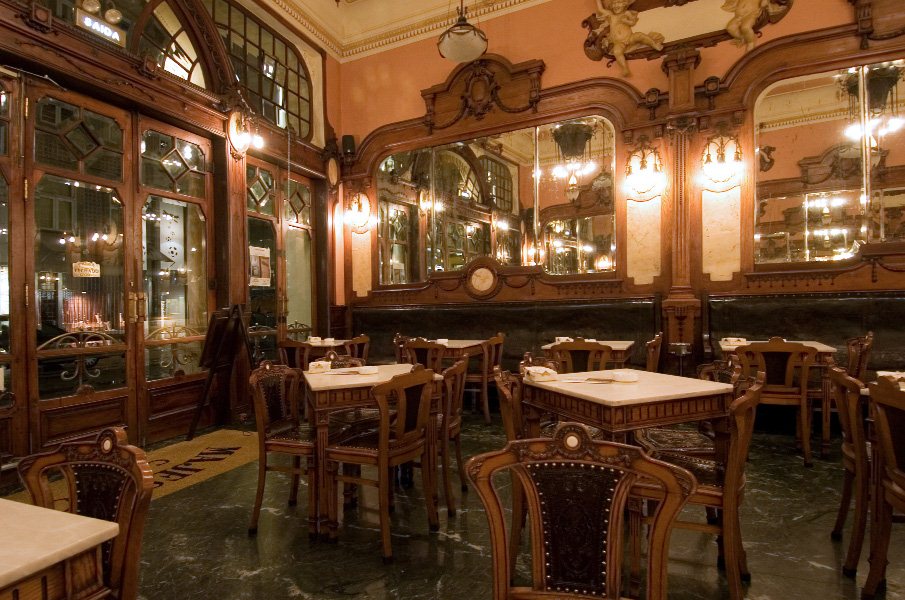
Opened in 1921, it is inscribed on the city's facade and is part of its soul. It could tell so many stories, if its walls could talk. It is certainly one of the most photographed spaces in Porto and one of the Historic Cafés that you cannot miss. In the middle of Rua de Santa Catarina, the Majestic Café, which is said to have inspired the author of “Harry Potter”, promises a trip to the Porto of the Belle Époque, of political, artistic and literary gatherings. While enjoying the art nouveau decor, taste the famous “Majestic French toast”. You will want more!
Guarany
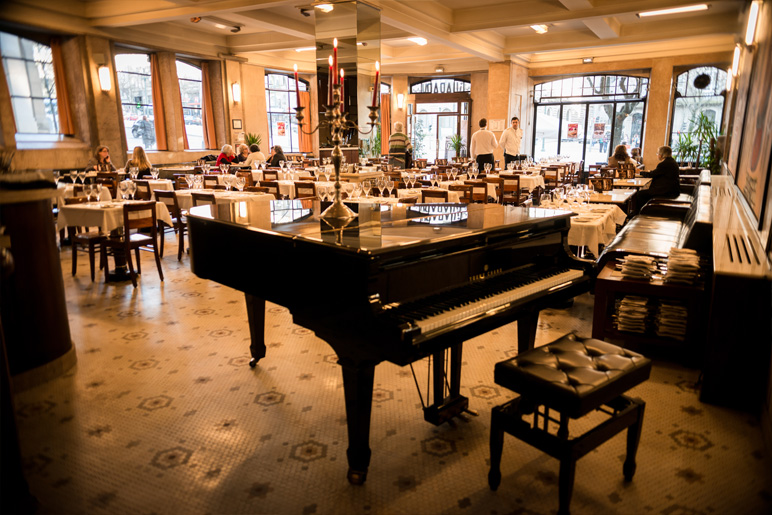
Its profound renovation didn't take away its charm, much less change its spirit. Guarany is one of the Historic Cafés in Porto that has more gracefully adapted to the new times, in a city that is now so geared towards tourism. More than just a café, since 1933 it has established itself as a cultural space. Note the high-relief by Henrique Moreira, “O Guarany”, and the panels by the painter Graça Morais, “Os Senhores da Amazónia”. And it's worth checking its agenda — the café often hosts concerts, fado nights, gatherings and debates.
Piolho
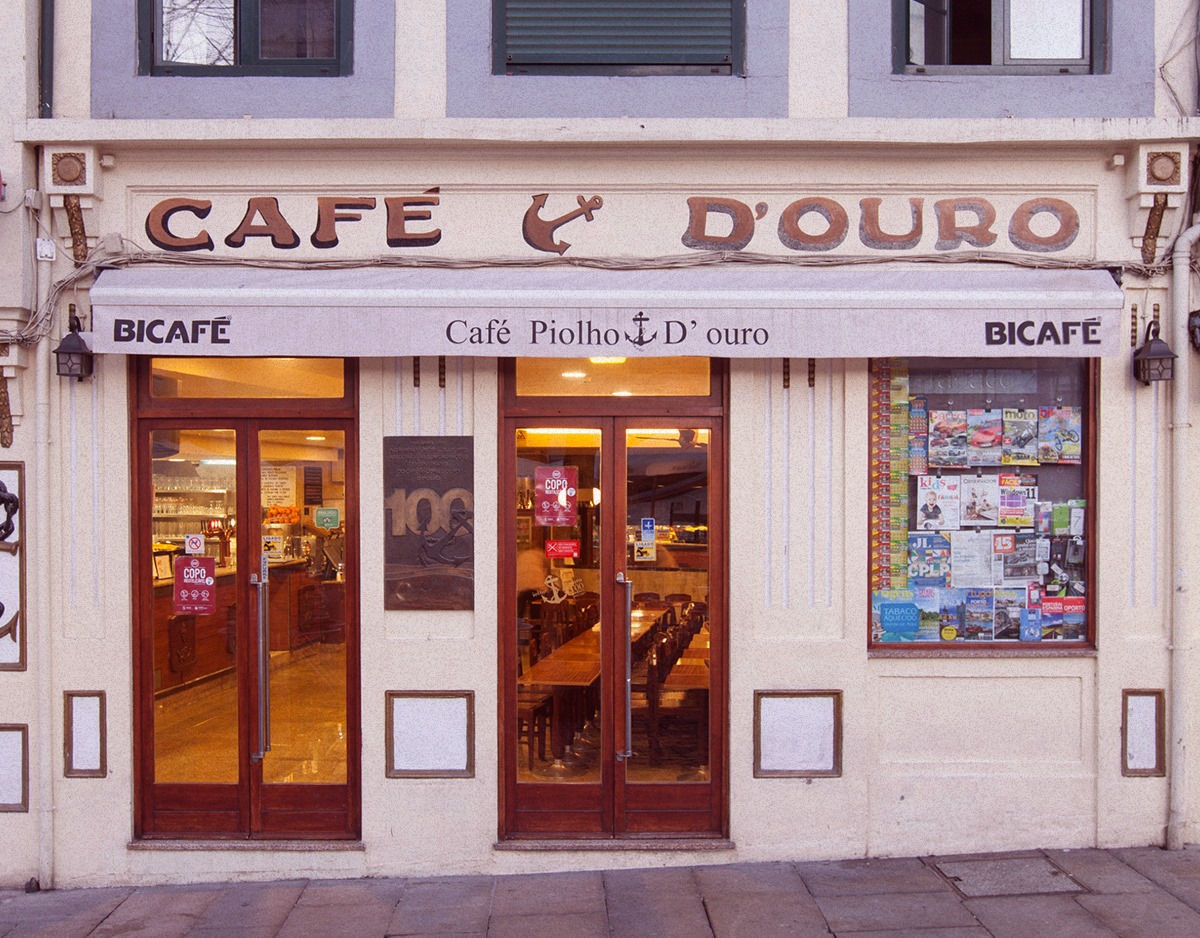
It opened its doors in 1909 as Águia d’Ouro but, it is not known how or why, it ended up becoming known as Piolho. A meeting point for university students, it has hosted the city's liveliest nights for many decades. Without the refinement and luxury of other emblematic cafes in the city, but genuine as few others, its long tables and wall mirrors tell stories of conspiracies, political debates and heated gatherings. It was the first café in Porto to have light, television and the La Cimbali, an espresso machine – and thus the so-called "cimbalino" from Porto was born.
A Brasileira, Porto
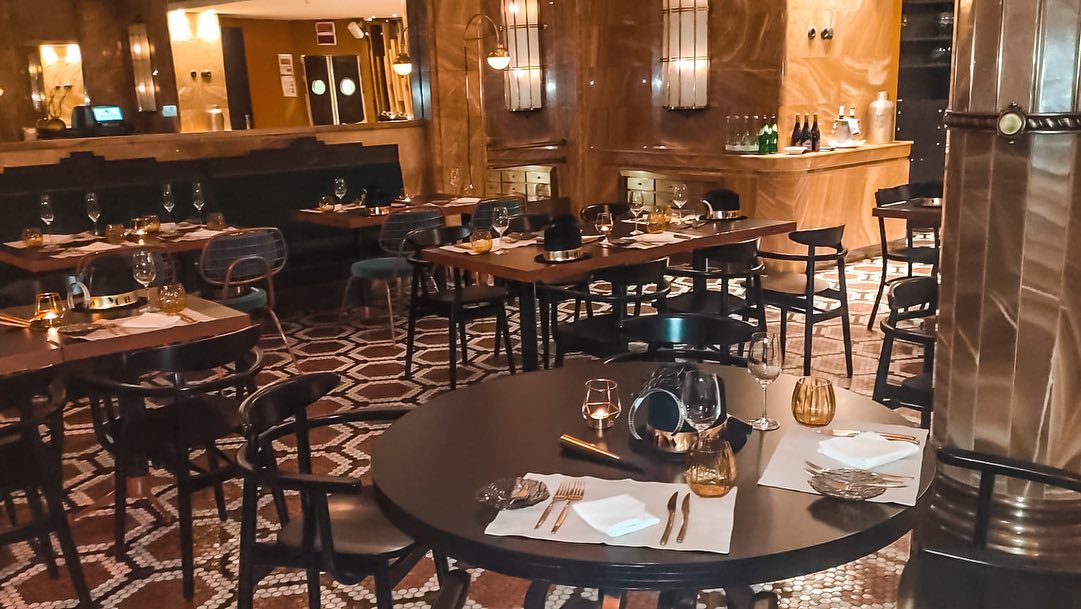
A Brasileira opened in 1903 and dazzled the people of Porto with its remarkable facade and luxurious decoration, where crystals and marbles stand out. But it was coffee, which came directly from Brazil, the biggest star here, instituting the Portuguese habit of drinking coffee by the cup in public spaces in the city. It quickly became a gathering place for writers, politicians, artists, journalists and bohemians. But time was not kind, and A Brasileira even closed its doors. The last renovation, in 2018, returned the historic café to the city, now integrated into a hotel.
Recommended
